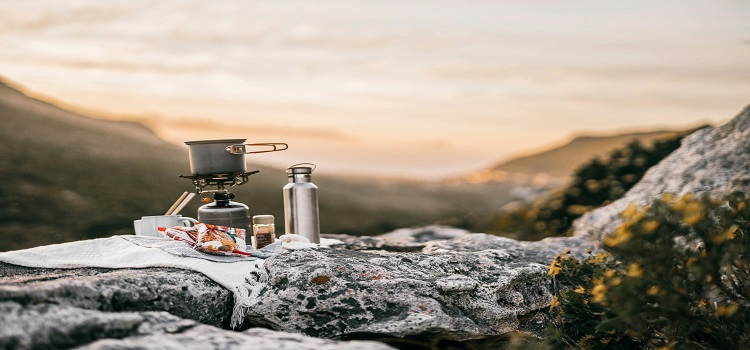As an Amazon Associate I earn from qualifying purchases.
Troubleshooting: Water Not Boiling on Gas Stove
Introduction: A gas stove is a staple appliance in many kitchens, known for its quick heating and precise temperature control. However, encountering issues such as water not boiling on a gas stove can be frustrating. In this guide, we’ll explore common reasons why water may not boil efficiently on a gas stove, troubleshooting steps to address the issue, and answers to frequently asked questions to help you regain optimal performance from your stove.

Possible Reasons for Water Not Boiling Efficiently:
- Low Heat Output: Insufficient heat output from the gas burner may result in slow heating and difficulty reaching boiling temperature.
- Incorrect Burner Size: Using a burner that is too small for the size of the pot or pan can lead to uneven heating and prolonged boiling times.
- Pot Material: The material of the pot or pan can affect heat transfer and boiling efficiency. Thick-bottomed pots with good heat conductivity are ideal for rapid boiling.
- Pot Size: Using a pot that is too large for the burner may result in heat loss and inefficient boiling.
- Gas Pressure: Fluctuations in gas pressure or a clogged gas line can impede the flow of gas to the burner, affecting heating performance.
Troubleshooting Steps:
- Check Gas Supply: Ensure that the gas supply valve is fully open and that there are no obstructions in the gas line.
- Clean Burner: Remove any debris or food residue from the burner ports using a soft brush or compressed air to improve gas flow and combustion.
- Adjust Burner Flame: Adjust the burner flame to a higher setting to increase heat output, ensuring that the flame envelops the bottom of the pot evenly.
- Use Correct Pot Size: Use a pot or pan that matches the size of the burner to maximize heat transfer and efficiency.
- Use Proper Pot Material: Choose pots and pans with thick, flat bottoms and good heat conductivity, such as stainless steel or aluminum, for optimal boiling performance.
FAQs (Frequently Asked Questions):
- Why is my water taking so long to boil on the gas stove?
- Slow boiling may be due to factors such as low heat output, incorrect pot size, or pot material. Try adjusting the burner flame and using a properly sized pot for faster boiling.
- Should I cover the pot when boiling water on a gas stove?
- Yes, covering the pot with a lid can help trap heat and reduce boiling time by preventing heat loss through evaporation.
- How can I increase the heat output of my gas stove burner?
- Ensure that the burner ports are clean and free from obstructions, and adjust the flame to a higher setting using the stove’s control knob.
- Why is my gas stove burner flame yellow instead of blue?
- A yellow burner flame may indicate incomplete combustion due to factors such as insufficient air supply or a dirty burner. Clean the burner and ensure proper ventilation to achieve a blue flame.
- Can altitude affect boiling time on a gas stove?
- Yes, higher altitudes can affect boiling time due to lower atmospheric pressure, which results in lower boiling points for liquids. Adjust cooking times accordingly when boiling water at higher altitudes.
- Is it safe to leave water boiling unattended on a gas stove?
- It is not recommended to leave water boiling unattended on a gas stove due to the risk of spills, boil-overs, and potential fire hazards. Always monitor cooking activities closely.
- Why does my water boil over on the gas stove?
- Water may boil over on a gas stove if the heat is too high or if the pot is too small for the amount of water being boiled. Reduce heat or use a larger pot to prevent boil-overs.
- Should I use distilled water for boiling on a gas stove?
- Distilled water is not necessary for boiling on a gas stove, but it may be preferred for certain applications where water purity is important, such as in laboratory settings or for making delicate beverages.
- Can I use a kettle for boiling water on a gas stove?
- Yes, stovetop kettles are designed for boiling water on gas stoves and provide efficient heating for making hot beverages such as tea or coffee.
- What should I do if my gas stove still doesn’t boil water efficiently after troubleshooting?
- If troubleshooting steps do not resolve the issue, consider contacting a qualified technician or appliance repair service to inspect the stove for any underlying mechanical problems or gas supply issues.
Conclusion: Encountering difficulties with water boiling on a gas stove can be frustrating, but by understanding the possible reasons and following troubleshooting steps outlined in this guide, you can identify and address the issue effectively. Remember to prioritize safety when using gas stoves, avoid leaving boiling water unattended, and consult with professionals for assistance if needed. With proper maintenance and attention to cooking techniques, you can enjoy efficient and reliable boiling performance from your gas stove for all your culinary endeavors.
As an Amazon Associate I earn from qualifying purchases.
Leave a Reply